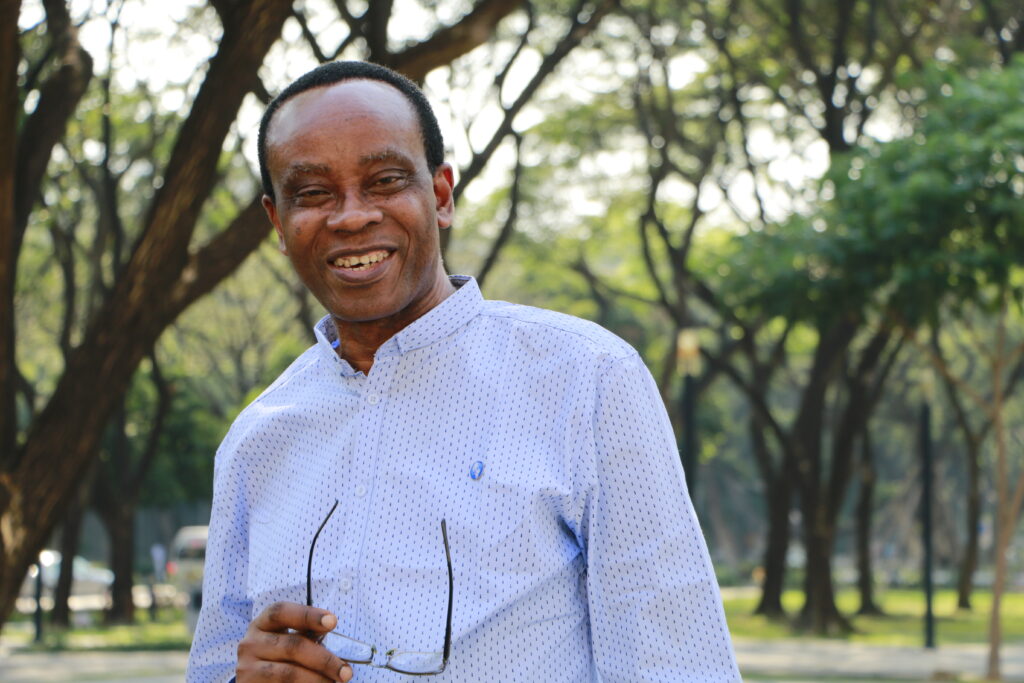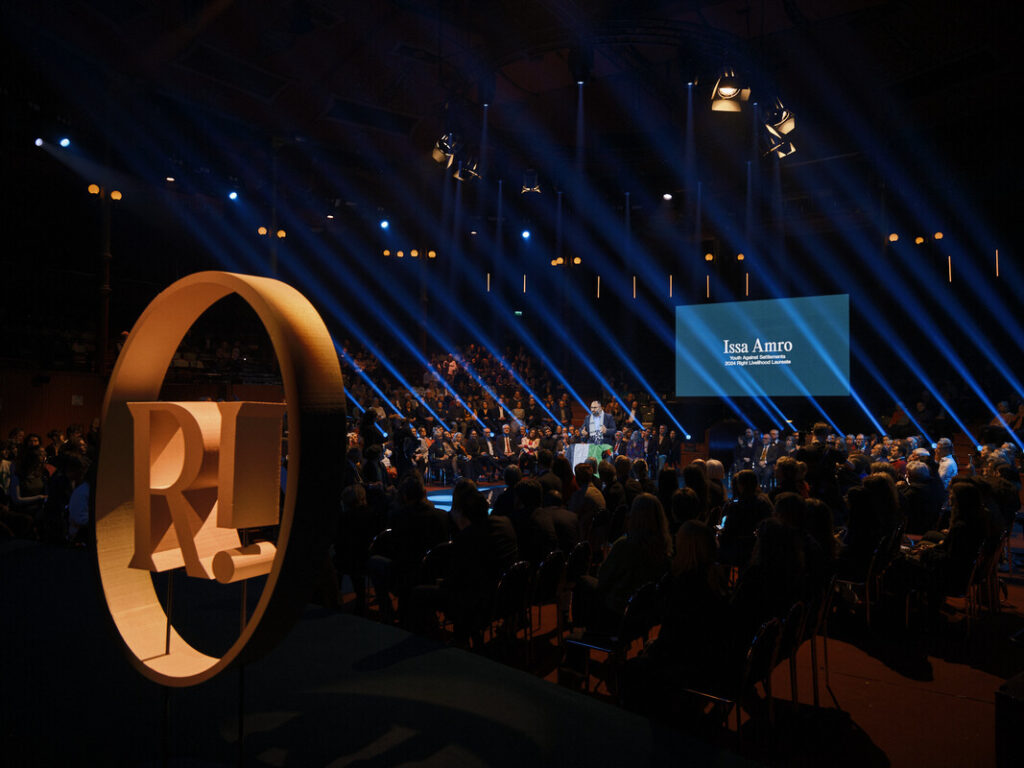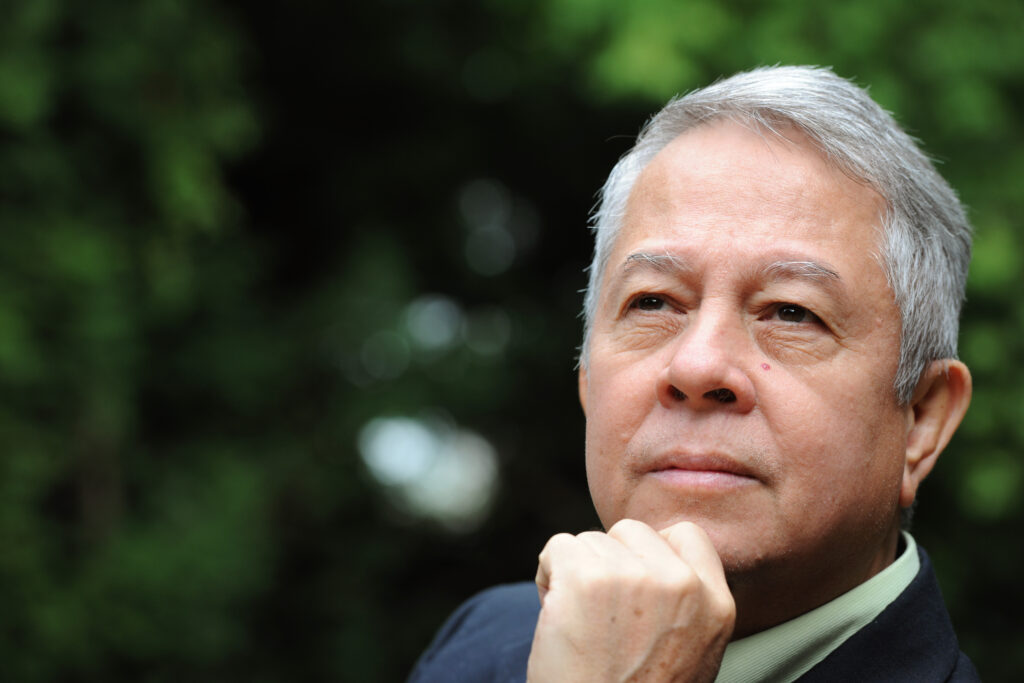2014 Right Livelihood Laureate Basil Fernando and his colleagues at the Asian Human Rights Commission (AHRC) have been working on a common problem for the last 40 years: the breakdown of the rule of law. Today, Fernando said, one does not need to look any further than Sri Lanka, his home country, to see this process play out in real-time, as well as understand how to turn it around.
For the past six months, Sri Lankans have gathered en masse to protest against the government. The administration’s bad governance and mismanagement of the economy have driven the country into an economic crisis. As a result, people are suffering from malnutrition, fuel shortages and daily blackouts, and the government cannot import necessities like medicine.
While the protests have made significant progress, Fernando says that without rebuilding the rule of law, Sri Lanka will not recover from the deep economic, social and political turmoil it is currently in.
The crisis has affected everyone. People of every political ideology, age, and ethnic background have gathered to protest the government.
“Huge numbers, unexpected numbers, began to gather,” Fernando said. “Their main demand was that the president should resign. The slogan was GotaGoHome, with Gota being the family name. It became a national thing, resounding everywhere.”
The slogan proved to be successful. It has now been more than two months since the protesters’ main demand was met and President Gotabaya Rajapaksa resigned. According to Fernando, however, this is where the real struggle begins.
“When you say GotaGoHome and President Get Out, everybody understands,” said Fernando. “But, if you say the judiciary needs to be improved, that is not easy.”
The problem is that the crisis goes much deeper than the current government, Fernando explained. From the British occupation to the brutal killings of student revolutionaries in the early 1970s, there have been many moments in Sri Lankan history where the government failed its people.
However, Fernando said, one historic event was especially detrimental. In 1978, a right-wing president introduced a new constitution that centralised presidential power and weakened the judiciary and legislature. It also gave the president complete legal immunity.
“The constitution says that the president cannot be brought to court for any reason, not even a personal matter,” Fernando said. “The result was, whatever the government did, they could use this immunity provision. And it was extended to ministers.”
The immunity enjoyed by government officials eventually spread to all public institutions.
“Corruption has increased to a level that is far beyond any imagination,” said Fernando. “Earlier, there were limited levels of corruption. Today, corruption is simply in everything.”
The complexity of this crisis means there are no easy solutions. Even when broken down into smaller pieces – politics, economics, and human rights – everything comes down to rebuilding the rule of law, Fernando said.
“Very often, people do not see the link,” he said. “To run a central bank, you need to observe rules. It’s the same with everything. But, once the observance of the rules becomes irrelevant, you can do whatever you like. And without putting that back somehow, how can you expect a solution?”
When a crisis like this occurs and a country is unable to fix it themselves, Fernando explained, the United Nations and the rest of the international community often step in to offer recommendations. The problem is that these recommendations rarely turn into actions.
“In the UN, various bodies come out with huge amounts of recommendations every year,” explained Fernando. “They centre around just three things: have investigations, prosecute offenders, and compensate the victims. But, if you have no machinery to investigate, who is going to investigate? If we don’t investigate, who is going to prosecute? If you don’t have prosecutions, then who is going to pay compensation?”
To overcome this problem, Fernando emphasised the importance of understanding the local context and studying the existing judicial system.
Fernando proposed there should be a dedicated research centre on each subcontinent that focuses on studying local legal systems, as well as closing the gap between the UN’s recommendations and implementing real solutions.
“There should at least be one centre of dialogue,” said Fernando. “Where we can bring various people, experts, judges, lawyers, politicians to engage in research on how to improve the rule of law. If you have a centre like that, it will be constantly engaged and it can feed the UN system with better, more in-depth information.”
While these types of solutions require significant resources and time, Fernando remains optimistic and continues to believe that rebuilding the rule of law is possible.
“I have continued to talk about it and write about it,” Fernando said. “And somehow, if we are able to communicate this, and get some discussions going in this area, I think we can make much more progress. Even within the governments there are a lot of people who understand the problem. They want ways out of it too.”



























































































































































































































































































































